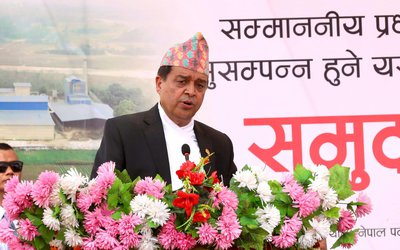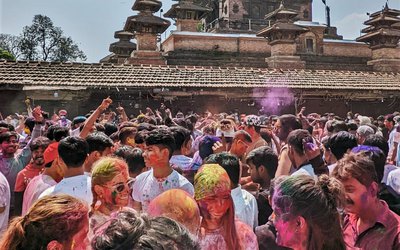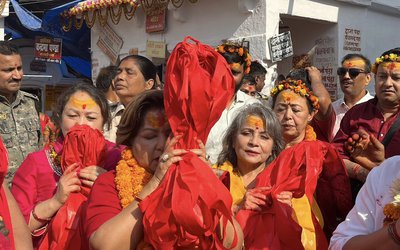There are not too many instances when a person in a position of power feels comfortable with the extra-constitutional apparatus. A month after he became chairman of the council of ministers, Khil Raj Regmi's relationship with the "high-level machinery", consisting of top leaders of the four major parties, is souring. Regmi is depending less and less on the machinery and is quietly building a relationship with President Ram Baran Yadav, so that major decisions or ordinances of his government are endorsed without a hitch. President Yadav fully cooperated with the government on its updating of the current budget, covering the remaining three months of the current financial year and a fully fledged one for the next.
In contrast to his own attitude towards Baburam Bhattarai's government, Yadav has promptly put his seal of approval on every decision and ordinance put forward by the Regmi administration with sweeping implications, although constitutionally debatable. This is making Regmi more powerful than any past prime minister — and all this ostensibly to enable him to hold elections by mid-November. At the same time, relations between the president and the Maoists are also getting embittered. To make things worse, Yadav last week asked the finance minister for details of the discretionary distribution of government funds by past regimes, including Bhattarai's, in violation of norms.
Parallel to these developments, Regmi refused to accept the election commission's proposal to bring all security forces under its command once the election process begins. Regmi is emerging more powerful by the day, at the expense of the four-party machinery. That relations between the machinery and the government are not cordial became obvious when Finance Minister Shankar Koirala said publicly that "bringing a budget was a constitutional prerogative of the government, and consulting any one for that was not necessary." But Regmi justifies each action, and from every platform issues an appeal to make the election a success. His government has not, however, declared the date, although both the government and the EC have made it clear that it is not possible in June. There are many hurdles. At least 33 parties have questioned the constitutional validity of a government headed by the sitting chief justice. They assert that the four-party machinery and its control is extra-constitutional, and will affect electoral fairness. Regmi is perhaps using that resentment to get out of the parties' control. That, however, has created fresh doubts about polls in November.
"If elections are not held in June, they will never take place, and we will launch a movement," said Maoist chief Prachanda, who was the first to propose Regmi as government head. Even the Nepali Congress seems beset with internal disputes, as seen in its national convention where at least one-third of the 1,300-odd delegates signed a petition demanding Nepal's status as a Hindu nation be restored. In a direct challenge to the Maoist line on federalism, the NC convention announced it will oppose federalism based on ethnicity. A direct confrontation between pro-election parties on vital components of the future constitution is not good news.
The people are angry or even indifferent. Regmi and his cabinet of retired bureaucrats may have seen the chances of continuing beyond November should the election not take place, but the government's legitimacy will continue to be questioned.
(The Indian Express)

Yubaraj Ghimire
Ghimire is a Kathmandu based journalist.
- Manmohan Singh And The Churn In Nepal
- Jan 08, 2025
- Why ‘Revolutionary’ Communist PM Prachanda Went To Temples In India
- Jun 08, 2023
- Why China Is Happy With Nepal’s New PM
- Jan 03, 2023
- Prachanda Sworn In As PM: New Tie-ups In Nepal, Concern In India
- Dec 27, 2022
- Young TV Anchor As Its Face, RSP Rise Takes Nepal By Surprise
- Nov 23, 2022














